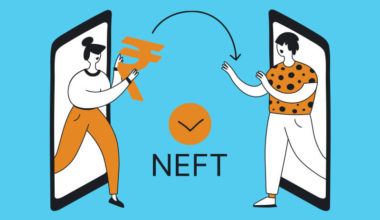While there are multiple ways to transfer money, each one of them has its advantages and disadvantages. With the advancement of technology, everything, almost every task is now available online. However, there are still a few people who prefer the old-school ways to get their jobs done.
Table of Contents Show
Well, there is nothing to worry about. This blog talks about both, the online and offline ways to transfer money, the advantages and disadvantages of both and a detailed difference between them. Before we move on to understanding how you can transfer money using each of the various online and offline ways, let’s first take a look at the different ways in which you can transfer money-
Online Ways to Transfer Money
While talking about the online ways to transfer money, Paytm is a one-stop destination for you. All you need is to simply download the Paytm application, and choose your preferred way to transfer money online from any one user to the other. Paytm is indeed one of the easiest and most convenient ways to transfer money online.
However, you can still choose either of the following ways to transfer money online-
UPI – Unified Payment Interface
Unified Payment Interface (UPI) is a popular mobile payment method that allows you to transfer funds from one bank account to the other, instantly and free of charge. Transferring money through UPI requires each user to have an ID, termed as the UPI ID. The UPI ID is a unique identification for a bank account that is used to send and receive funds from one bank to another. The UPI PIN is a 4-digit personal identification number required to transfer money through UPI. Every account holder has the option to choose his/her UPI PIN. To perform direct bank-to-bank transfers, you can simply download a UPI payment application like Paytm, create your UPI account and enter the receiver’s contact number to send money.
Here’s how you can transfer money from one bank to another through UPI-
- Selecting a Contact/Entering Mobile number
- Scanning a UPI QR code
- Entering UPI ID
- Entering Account Number & IFSC
Advantages:
- Simplified, hassle-free online payments
- Safe and secure mode of money transfer
- Allows you to make payments towards your bills, shop on e-commerce websites, etc.
- Lets you make payments by scanning QR codes at your nearby departmental stores, chemist shops, etc.
- Regularly paying through UPI also helps you earn discount vouchers, cash back, and other rewards
- No need for beneficiary approval
- Allows users to perform transactions free of cost!
Disadvantages:
- UPI is not suitable for transactions involving huge amounts
IMPS – Immediate Payment Service
IMPS is another method that allows users to transfer funds from one bank to another. IMPS stands for Immediate Payment Service, implying that using this method, you can transfer funds immediately. IMPS transactions have a daily maximum limit of Rs. 1 Lakh and levy an additional service tax. The charges on transactions made through IMPS vary between Rs. 5 to Rs. 15, depending on the bank’s conditions. Immediate payment service is a robust, real-time fund transfer option that offers a 24*7 inter-bank fund transfer facility, which is safe and economical for all users.
Advantages:
- IMPS is fast, safe and reliable method of transferring money
- The immediate payment service works on both, internet banking and mobile platforms
- This immediate payment service can be accessed at all times; even on public and bank holidays
- Users can add beneficiaries through IMPS mobile platforms only by providing the receiver’s mobile number and MMID (Mobile Money Identifier)
- IMPS transactions made through mobile phones do not require bank account numbers
- Upon completion of an IMPS transaction, both the payer and the payee are notified by the bank immediately
- Apart from transferring money from one bank account to another, IMPS can also be used to receive payments, make payments to other merchants, perform mobile banking transactions, etc.
Disadvantages:
- IMPS transactions levy a GST charge of 18%
- IMPS charges involve additional processing fees and charges
NEFT – National Electronics Fund Transfer
NEFT is a one-to-one payment facility wherein the transactions can be processed only between the banks that offer NEFT-enabled services. Transactions made through NEFT do not take place in real-time; implying that it takes a few days for NEFT transactions to complete. To transfer funds through NEFT, you must add beneficiaries on the internet banking portal of your required bank. There are no limits on the amount of NEFT transactions. There is a fee applicable on all NEFT transactions; the amount varies from Rs. 2.5 to Rs. 25, depending on the amount being transferred. As per RBI guidelines, the payments made via NEFT are processed and settled in batches of half-hour.
Advantages:
- NEFT makes the transfer of funds easy, convenient and feasible
- All NEFT transactions take place online; hence, there is no involvement of a third party
- Owing to the involvement of RBI, NEFT transactions are completely safe and secure
- The receiver and sender of the funds get notified instantly upon completion of the transaction
- NEFT does not require cheques or demand drafts while transferring money; hence, it is economical
- Apart from transferring money, you can also use NEFT to pay your loan installments, credit card dues, EMIs, etc.
Disadvantages:
- NEFT is quite a technical mode of payment; hence, not everyone might be able to use it
- NEFT transactions use an unsecured browser to process the transactions, which makes users’ information prone to be hacked or passed on to fraudsters
Real Time Gross Settlement
RTGS stands for Real Time Gross Settlement. It is a money transfer system that allows the transfer of funds from one bank account to another in real-time and on a gross settlement basis. The term, ‘real-time’ implies that transactions through RTGS are processed right when they are initiated by the sender, and ‘gross settlement’ means that the instructions regarding the transfer of funds occur on a one-to-one basis. Transactions made through RTGS are processed on a one-to-one basis and can be performed at any time, on any day of the year. The Real Time Gross Settlement method is mostly used for transactions of high value. RTGS transactions can be used using both online and offline modes.
Advantages:
- Since it is managed by the Reserve Bank of India, RTGS is a safe and secure method of transferring funds
- RTGS allows the real-time transfer of funds
- There are no additional charges applicable on the transactions made through RTGS
- The RTGS services can be accessed at 24*7, throughout the year
- The transactions to be made through RTGS can be initiated from anywhere using internet banking
- All the RTGS transactions are backed legally; hence, there is minimal risk of frauds
Disadvantages:
- In RTGS mode of payment, users may not be able to track their transactions, which makes it difficult to keep a record of payments made
- RTGS transactions have limited operational timings (work only on weekdays, from 9:00 AM to 6:00 PM); hence, the transactions cannot be processed 24*7
Offline Ways to Transfer Money
You can choose either of the following ways to transfer money offline-
Cheque
Cheque is one of the most traditional ways to transfer money from one bank account to another. The payee signs a cheque in the name of the receiver, mentioning the amount that needs to be paid. The receiver can further visit the bank and submit the cheque to the concerned official at the bank. The money will be deducted from the payee’s bank account and will be transferred to the receiver’s bank account as soon as the cheque is cleared. It is important to note that if there’s not enough money in the payee’s bank account, the cheque will bounce back and the payee will have to pay an additional fee for the same. There are no restrictions on the minimum/maximum amount that can be transferred to a bank account via cheque.
Advantages:
- Even though cheques are the old-school way of transferring money, they are still very safe and secure
- A cheque, once written in the name of the receiver, has up to 3 months’ time to be deposited
Disadvantages:
- It takes a few working days to get the amount transferred to the bank account of the receiver
- Bank charges additional fees on dishonoured and bounced cheques
- Depositing cheques require the physical presence of the user, and cannot be done online
ATM Transfer
To transfer funds offline, you can also visit an ATM. All you need to do is insert your ATM/ debit card into the ATM, select your preferred language, and enter the ATM/debit card PIN. Next, click on ‘Yes’ and select the ‘Fund Transfer’ option. Enter the beneficiary’s bank name and account number, select the type of account, enter the amount to be transferred and click on ‘Correct’. Confirm your transaction and the amount will be transferred immediately.
Advantages:
- Users who are not very tech-friendly can easily transfer money through an ATM
- You can easily locate an ATM anywhere and transfer money in a few minutes
Disadvantages:
- You will have to physically move to an ATM to transfer money
- There are chances that your transaction gets timed out multiple times and you fail to transfer money
To Conclude
Since online ways are more preferred, considering the ease and convenience, there are only a few ways that allow you to transfer money from one bank account to another using offline methods. While almost all the methods, apart from cheque, can be used to transfer money online, there are a few methods such as NEFT and RTGS that offer both online and offline services. Out of all, UPI has been the most preferred method to transfer money from one bank account to another owing to the innumerable benefits that it offers. Along with this, when it comes to transferring money through UPI, Paytm is the absolute best mobile application that lets you make online money transfers within seconds, from the comfort of your home.
Which is the better mode of money transfer- online or offline?
What are the online money transfer ways?
- UPI
- IMPS
- NEFT
- RTGS










